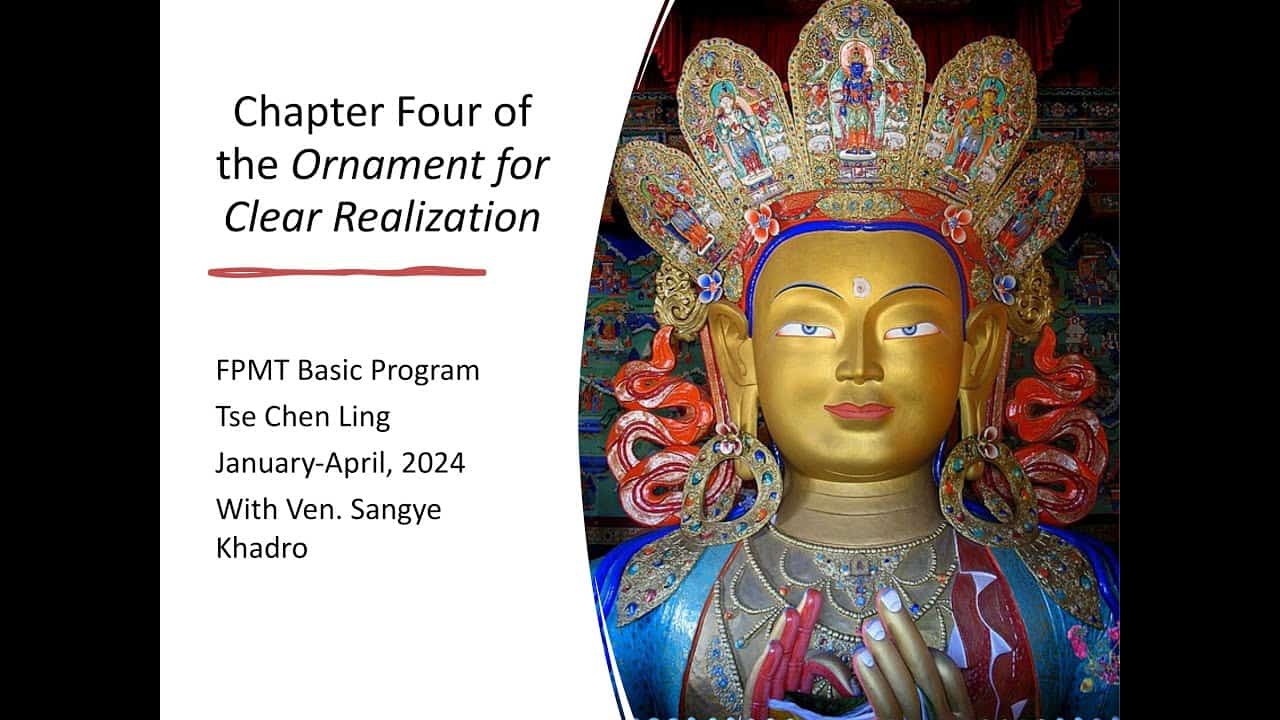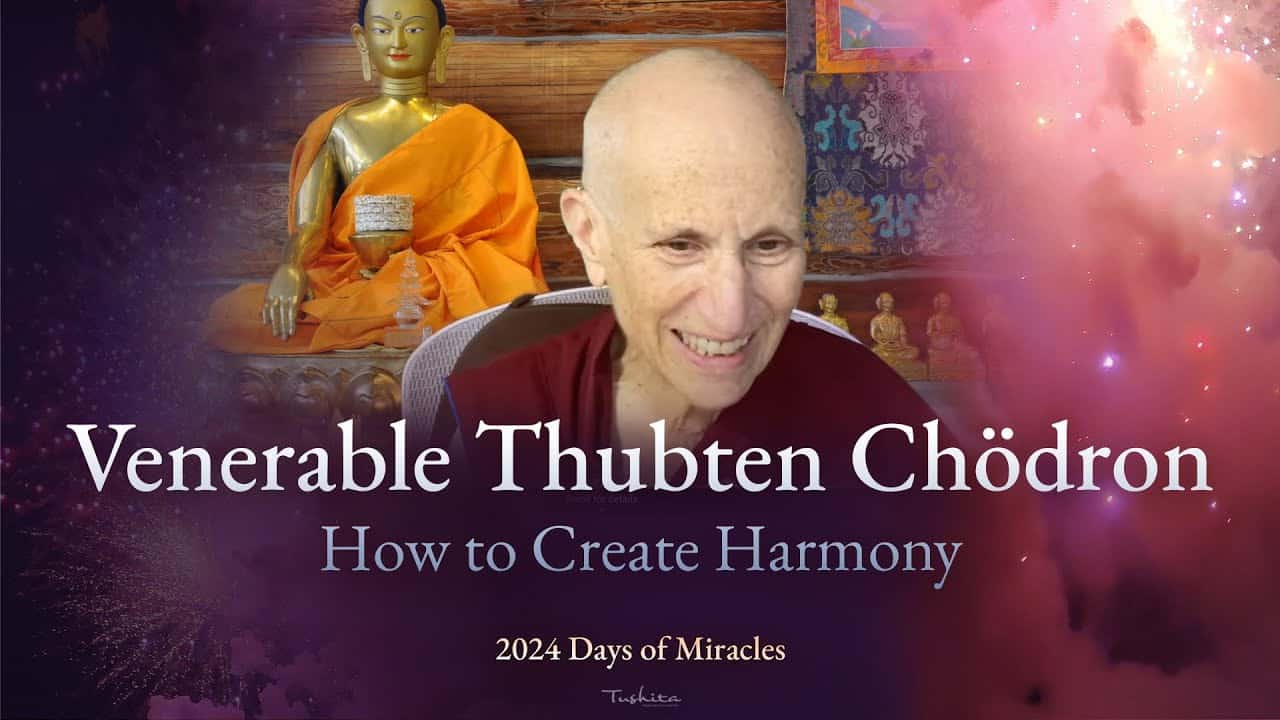Causal clear light mind
128 Samsara, Nirvana, and Buddha Nature
Part of an ongoing series of teachings (retreat and Friday) based on the book Samsara, Nirvana, and Buddha Nature, the third volume in The Library of Wisdom and Compassion series by His Holiness the Dalai Lama and Venerable Thubten Chodron.
- Review of points related to “within afflictions, wisdom abides” and “what is primordially awakened becomes reawakened”
- Wisdom of the ultimate nature and wisdom of the conventional nature
- Coarser levels of mind and fundamental innate clear light mind
- Description of general I and specific I in relation to continuity of a person
- Explanation of continuity of type and continuity of substance
- Discussion on how the mind of afflictions doesn’t go onto awakening
- How to correctly meditate on the conventional nature of the mind and ultimate nature of the mind
- How to avoid the pitfalls of literally understanding some statements related to primordial wisdom and sentient beings are already a buddha
Samsara, Nirvana, and Buddha Nature 128: Causal Clear Light Mind (download)
Contemplation Points
- Wisdom can mean different things in different contexts. When we say “within afflictions, wisdom abides”, to what does “wisdom” refer to? What is this statement getting us to think about? What is the difference in the explanation of the Sutra and Mahamudra/Dzogchen perspectives on what this wisdom is?
- Similarly, when it is said “what is primordially awakened becomes reawakened”, what are the teachings leading us to understand?
- While the fundamental innate clear light mind is the subtlest mind posited, it is not a soul or inherently existent self. Why? Explain in your own words.
- What are the “general” and “specific” I? Which is born and dies, and which goes to full awakening? Bring to mind a person who has died. Describe that person’s “specific” and “general” I.
- Make examples of continuity of type and continuity of substance. Is the awakened mind the continuity of type of afflictions? Why or why not?
- According to Dzogchen and Mahamudra, how can a practitioner use meditation on the clear and cognizant nature of the mind to attain liberation?
Venerable Thubten Chodron
Venerable Chodron emphasizes the practical application of Buddha’s teachings in our daily lives and is especially skilled at explaining them in ways easily understood and practiced by Westerners. She is well known for her warm, humorous, and lucid teachings. She was ordained as a Buddhist nun in 1977 by Kyabje Ling Rinpoche in Dharamsala, India, and in 1986 she received bhikshuni (full) ordination in Taiwan. Read her full bio.


